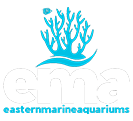Navigating the Depths of Saltwater Aquariums
In the world of aquatics, saltwater aquariums stand out as both a captivating challenge and a stunning centerpiece for any home or office. For aquarium enthusiasts and budding hobbyists, the allure of colorful fish and vibrant corals can be irresistible. However, the question arises—just how hard are saltwater aquariums to maintain? This blog aims to demystify the complexities, offering insights, tips, and encouragement for both newcomers and seasoned hobbyists.
Setting the Stage for the Challenges
Saltwater aquariums represent a vibrant slice of the ocean, offering a unique opportunity to create a living reef ecosystem. Unlike their freshwater counterparts, saltwater aquariums host a more diverse range of marine life, from clownfish and tangs to live corals and invertebrates. But with diversity comes complexity. The ecosystem’s balance must be maintained carefully to ensure a thriving environment for all inhabitants. This blog will guide you through understanding these complexities and how you can manage them effectively.
Enthusiasts are often drawn to the beauty and diversity of marine life that saltwater aquariums offer. Yet, despite this allure, they can be daunting to newcomers due to the intricate science involved and the commitment required. By understanding these challenges upfront, you’ll be better prepared to tackle them head-on and create a stunning underwater world.
From water quality to marine life compatibility and equipment choices, each aspect of saltwater aquarium maintenance presents its unique hurdles. But fear not; with proper guidance and determination, these can be overcome. Let’s explore the fascinating science behind maintaining these aquatic marvels.
Essential Water Testing Parameters in Reef Aquariums
Maintaining a successful reef aquarium involves consistent monitoring of several critical water parameters, including salinity, temperature, alkalinity, calcium, magnesium, nitrate, and phosphate. Each of these factors plays a vital role in the health of marine life and the stability of your aquatic ecosystem.
Salinity is paramount; it directly influences the osmotic balance for marine organisms. Regular testing with a reliable hydrometer or refractometer ensures salinity remains within the optimal range of 1.024 to 1.026 specific gravity. Temperature control is equally crucial, as fluctuations can stress or harm sensitive species. Ideally, reef aquariums should maintain a stable temperature between 75°F to 80°F (24°C to 27°C) to mimic natural coral reef environments.
Alkalinity, measured in dKH, helps stabilize pH levels and provides essential buffering capacity. Aimed between 7 to 12 dKH, stable alkalinity fosters a conducive environment for corals and invertebrates. Calcium and magnesium are also critical; calcium supports coral growth and skeletal formation, while magnesium aids in maintaining appropriate levels of calcium and alkalinity. Regular testing and supplementation ensure these minerals remain in the desired ranges, typically around 400-450 ppm for calcium and 1250-1350 ppm for magnesium.
Lastly, monitoring nitrate and phosphate levels is essential to prevent algae blooms that can choke the life out of delicate corals. Nitrate levels should ideally remain 5 – 10 ppm, while phosphate should be kept between 0.06 – 0.1 ppm to ensure a balanced ecosystem. By diligently testing and adjusting these water parameters, reef aquarium enthusiasts can create a vibrant, flourishing underwater paradise that thrives over time. As with all water parameters, stability is key. Pick a number and try to keep it as stable as possible.
Understanding the Challenges
When it comes to saltwater aquariums, water quality is paramount. Marine life is more sensitive to changes than their freshwater counterparts. Regular water testing and maintenance are crucial to prevent issues such as algae blooms or fish stress. Maintaining stable temperature and salinity levels is essential to promote a healthy environment.
Marine life compatibility is another challenge. Not all fish and corals can coexist peacefully. Researching and selecting compatible species is crucial to prevent aggression and ensure a harmonious environment. Understanding each species’ needs, behavior, and dietary requirements is key to building a thriving community.
The equipment required for saltwater aquariums can also be overwhelming. From protein skimmers to lighting systems, each component plays a vital role. Protein skimmers help remove organic waste, while specialized lighting supports coral growth. Choosing the right equipment for your tank size and setup can make a significant difference in maintaining water quality and overall success.
Overcoming the Challenges
For beginners, tackling these challenges may seem daunting, but with the right approach, it’s entirely achievable. Start by selecting hardy marine species that are more forgiving of beginner mistakes. Opting for a smaller tank can also simplify maintenance, as it’s easier to manage water parameters.
Investing in quality equipment is essential for long-term success. Research and choose reliable brands for filters, heaters, and lighting systems. Monitoring water parameters regularly and performing routine water changes will help maintain a stable environment. Setting a schedule for testing and maintenance tasks ensures nothing is overlooked.
Educating yourself is perhaps the most crucial step in overcoming these challenges. Join forums, read books, and seek advice from experienced aquarists. Learning from others’ experiences can provide valuable insights and prevent common pitfalls. Remember, patience and persistence are key.
Success Stories
Countless hobbyists have successfully navigated the challenges of maintaining saltwater aquariums. Take Leon, for example, who started with a small tank and gradually expanded as her confidence grew. By carefully researching species compatibility and maintaining a disciplined maintenance routine, she now boasts a thriving reef tank with a mesmerizing array of colors.
Similarly, Mark’s dedication to understanding water chemistry allowed him to troubleshoot and prevent issues before they escalated. His attention to detail and willingness to learn from both successes and failures have made his saltwater aquarium a testament to the rewards of patience and perseverance.
These stories highlight that with commitment and the right knowledge, anyone can master the art of saltwater aquarium keeping. It’s a rewarding hobby that offers both challenges and unparalleled beauty.
Encouragement for Newbies and Experienced Hobbyists Alike
For those embarking on their saltwater aquarium journey, remember that challenges are part of the experience. Each hurdle you overcome enhances your understanding and connection to the marine world. Whether you’re a beginner or a seasoned hobbyist, the joy of creating a thriving ecosystem within your home is an achievement worth pursuing.
Saltwater aquariums offer a sense of wonder and discovery, inviting you to explore the intricacies of marine life. The sense of accomplishment and satisfaction that comes with nurturing a vibrant reef environment is unmatched. With dedication, patience, and a thirst for knowledge, you can transform your passion into a stunning masterpiece.
EasternMarine Aquariums stands ready to support you on this exciting endeavor. With expertise in saltwater aquariums, they offer guidance, products, and insights to help you turn your vision into reality. Learn from New Zealand’s experts and take the plunge into the captivating world of saltwater aquariums. Whether you’re just starting or looking to enhance your current setup, EasternMarine Aquariums has you covered.












